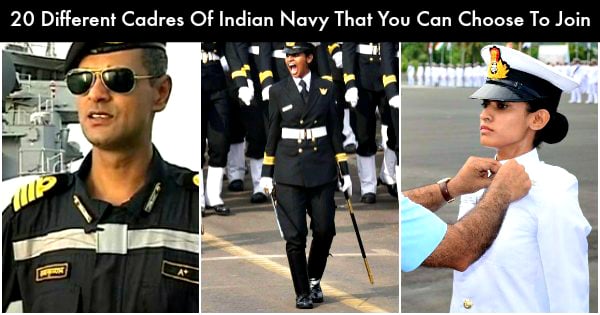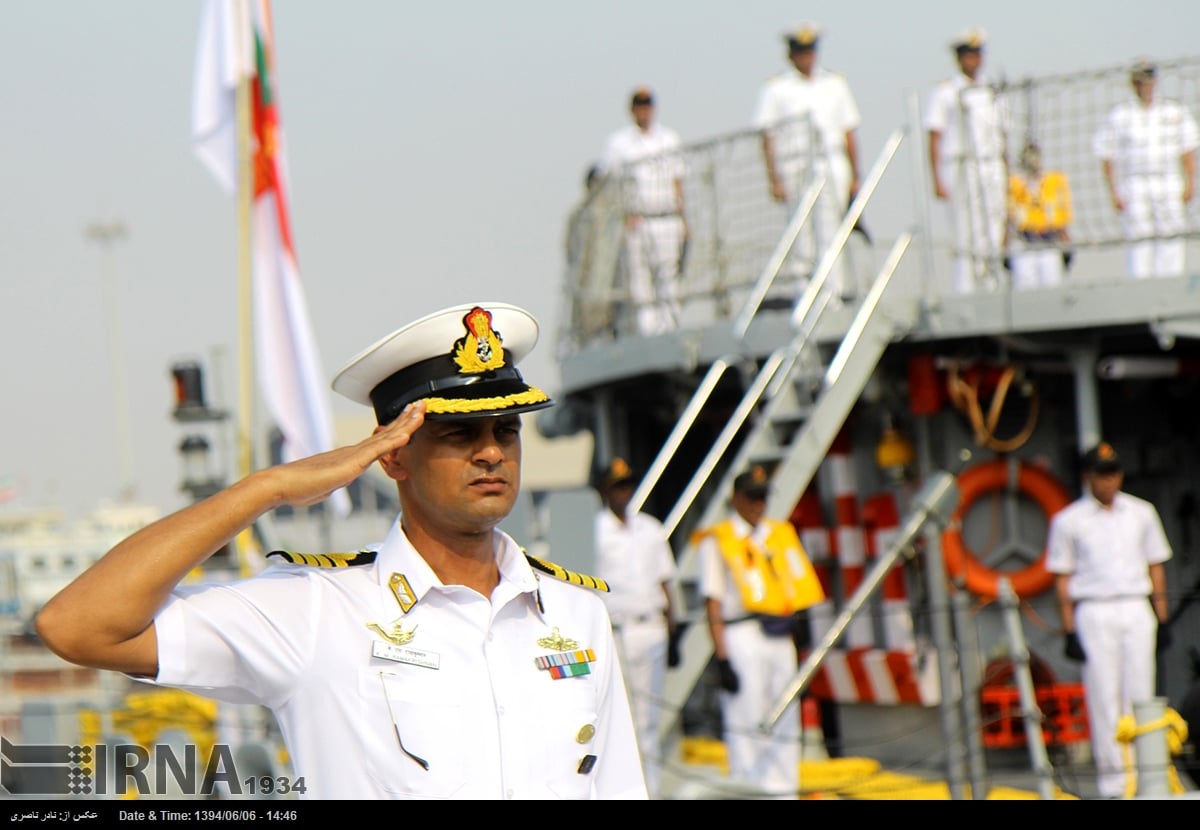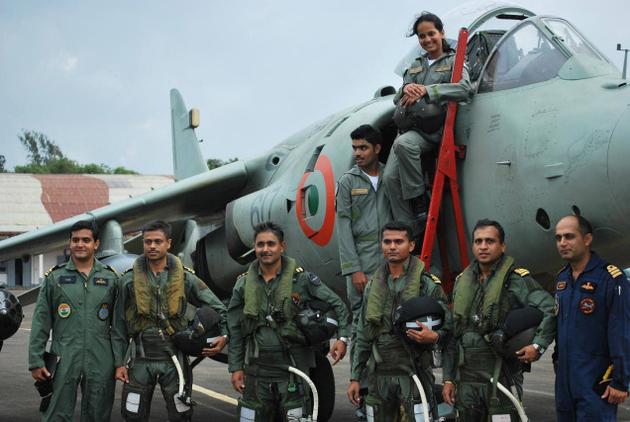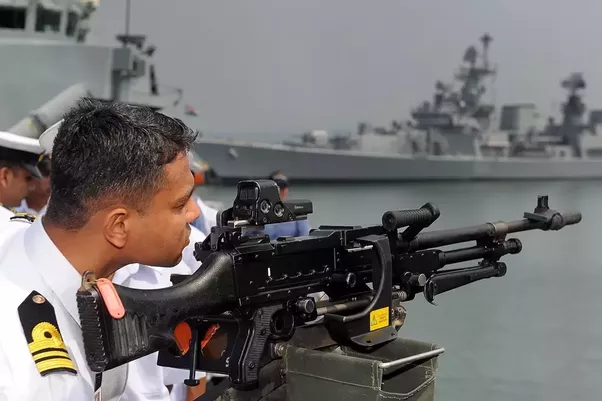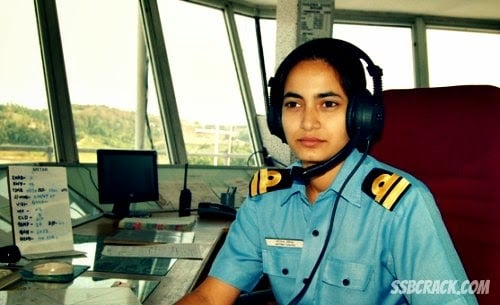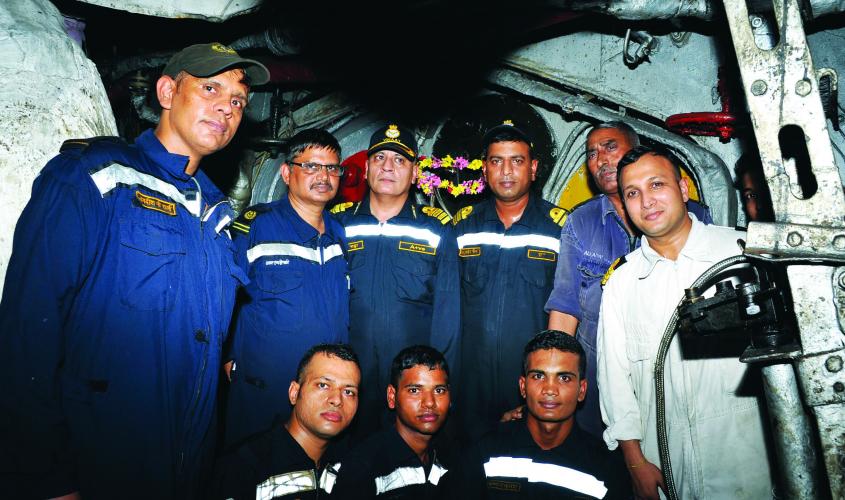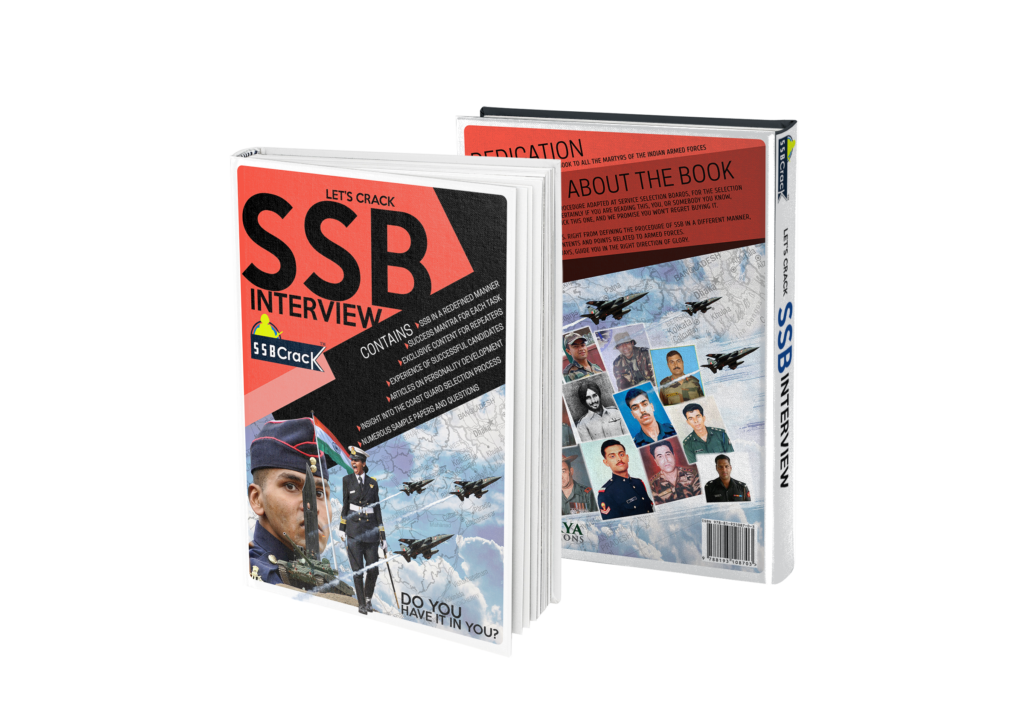India has one of the largest Navies in the world. The scene of men and women in white is always jaw-dropping. The Navy offers an extraordinary range of exciting career opportunities, attracting many youths of the country.
As a Navy aspirant, before joining the Navy, have you considered which branch will you be opting for if you get selected in the Indian Navy? If no, then you are just at the right place, reading the right thing. There are 14 cadres in the Indian Navy sorted into 4 major branches: Executive, Engineering, Electrical and Education-Medical.
Executive Branches:
As an Executive Officer, you will be a vital part of the complex system that manages the ship and also uses the ship as an instrument of tactical warfare. Executive Officers are trained in specializations such as Anti-Submarine Warfare, Navigation, Communications, Gunnery Logistics, Diving and Hydrography. An Executive Officer alone can aspire for the command of a naval warship
-
General Service (Executive) – GS(X):
As a GS(X) Officer, you would be at the helm of affairs in ships. Executive officers are leaders of men, strategists of modern warfare and ambassadors of our country when in foreign waters. Modern warships are highly evolved fighting machines needing capable and decisive leaders to operate them. A glorious career would see many highpoints and chief among them would be Command at sea.
-
Hydro:
The Hydrographic Officer operates from highly sophisticated platforms to conduct surveys at sea. They not only operate in territorial waters of India but on the high seas, depending upon the requirement. Surveys are also carried out in foreign waters, as and when called upon by friendly foreign nations. The Hydrographic Officer is also involved in producing navigation charts that are of international standards and are used by mariners across the world.
-
Pilot:
Naval Pilots operate fighter aircraft and helicopters from aircraft carriers and ships at sea as well as maritime reconnaissance aircraft from ashore. Naval aircraft search, locate and attack enemy ships, submarines and aircraft whilst providing a defensive cover to our assets at sea.
-
Observer:
Observers act as airborne coordinators of maritime warfare. Observer officers operate various state-of-the-art equipment including sonics, radars, sonars and communication equipment. The Observer officer gets an opportunity to participate in all facets of naval operations onboard maritime patrol aircrafts or ship-borne multi-role helicopters. You would also be responsible for firing weapons, as and when the need arises.
-
Logistics:
Logistics Officer would be responsible for management of Integrated Supply chain activities, using cutting-edge technologies and suitable managerial skills. Logistics Officer will also be responsible for the smooth supply of spare parts and other items to all naval ships/units and food and clothing requirements.
-
Naval Armament Inspection Cadre:
Naval Armament Inspection (NAI) Officers are the specialist officers responsible for Inspection & Quality Assurance (QA), in-house R&D, life extension and life assessment to ensure safety, serviceability and functional reliability of Armaments in the inventory of Indian Navy. NAI officers also provide QA coverage during production/ acceptance at various Ordnance factories, PSUs, Private Industry and at foreign OEM premises. The NAI officers associate with various DRDO labs during the development phase of various armament stores.
-
Information Technology:
Naval IT setup is unique since it involves not only shore-based establishments but also afloat units, which require maintaining connectivity and synchronized operations. The IT officers are exposed to handling niche technology and R&D functions as part of standard growth profile.
-
ATC:
Air Traffic Control Officers in the Indian Navy control naval fighter aircraft, maritime reconnaissance aircraft and multi-role helicopters both ashore and afloat.
-
Law (JAG):
A Judge Advocate is appointed under Section 168 of the Navy Act, 1957 and is deemed to be a Judicial Officer. The primary role of a JAG officer is to deliver independent,operationally-focused, solution-oriented legal advice and services across the full spectrum of naval law towards supporting naval operations and a sound naval administration.
-
Sports:
As a Sports entry officer, you will serve as Physical Training Officers at various establishments, Secretary/Assistant Secretaries at INSCB/INSCCs where you would have to look at various facets of sports management. Sports Officers serve at Command Headquarters/Establishments. You will nurture and train some of the finest sportsmen of the Navy for national/international competitions.
-
Musician:
As a Musician Officer, you will be responsible for conducting the acclaimed Naval Band at ceremonies and symphonic band concerts in India/abroad. Candidates will be inducted as officers in the rank of Sub Lieutenant and undergo Naval Orientation Course at the Indian Naval Academy, Ezhimala, Kerala followed by professional training at various Naval Training Establishment /Units/Ships.
-
Provost Officer:
A separate cadre of Provost Officers exists to deal with policing, regulatory, and security and vigilance needs of the Navy.
-
Diving officer:
Diving Officer job range from underwater inspection and repair of ships to defence of Indian Navy maritime assets. This is yet another elite and challenging task specialization wherein being in the parent-professional arm with sub-specialization such as gunnery, Navigation, Anti-submarine warfare or else logistics, hydro, Aviation etc one can become ships diver.
Engineering Branches:
-
General Service (Engineer):
As an Engineer Officer, you will get an opportunity to operate and maintain the Marine Engineering equipment onboard ships/submarines/aircrafts. In addition, huge opportunities exist to work in Repair Yards and Maintenance Units to provide the third and fourth line of maintenance. Engineer officers also get a chance to work in Design and Production organizations to contribute to indigenous ship-building.
-
Submarine:
As a Submarine Engineer officer, you will be tasked with the requirements of maintaining high-end propulsion systems, including nuclear and diesel, along with associated systems. Higher allowances and station stability are just some of the advantages of joining the Arm. If you are an adventurous person with a passion to do something unique, then this is the field for you.
-
Naval Architecture:
Naval Architects specialise in warship and submarine construction. A Naval Architect is involved in the design, quality control, repair and construction of Naval vessels. In no other career, an Architecture Officer gets exposed to such wide developments. The Naval Architecture Cadre offers excellent opportunities to keep abreast of advancements in ship-building technology.
Electrical Branches:
-
General Service (Electrical):
As an Electrical Officer, you will have the responsibility of maintaining the combat readiness of sophisticated Missile Systems, underwater systems, long-range sensors and advanced combat management system which employ niche technologies and complex software algorithms. You will be also responsible for running large power distribution networks using advanced computer-based power management systems.
-
Submarine:
As a Submarine Electrical officer, you will be looking after the maintenance of high-end control and weapon systems. Higher allowances and station stability are barely some of the advantages of joining the Submarine Arm. You would also be afforded an opportunity to pursue higher studies viz. M tech in premier training institutions of India. If you are an adventurous person with a passion to do something unique, then this is the field for you.
Education Branch:
- Education Officers play a major role in training officers and sailors of the Indian Navy. Education Officers are responsible for scientific and methodical instructions including theoretical aspects of technical subjects of all Branches of the Navy and for the general educational advancement of its personnel. Education Officers impart instructions in various Indian Naval Training Establishments including the prestigious Indian Naval Academy (INA) at Ezhimala. Education Officers are engaged in teaching science, technical and service subjects to naval cadets undergoing B.Tech training at INA.
Medical Branch:
- As a doctor in the Navy, you will have an opportunity to learn and practice military medicine and look after the health of the men in uniform and their families both in peace and war. There are ample avenues to specialize in basic specialities and super specialities. Most of the postgraduate courses are conducted at Armed Forces Medical College (AFMC), Pune and various other teaching hospitals of the Armed Forces. However, the service also offers opportunities to avail study leave at Government expense for the super-speciality courses at reputed civil institutions in India and abroad.
So, which cadre/branch have you chosen to join the Navy?
SSB Interview Preparation Material [ 100% Recommended]

